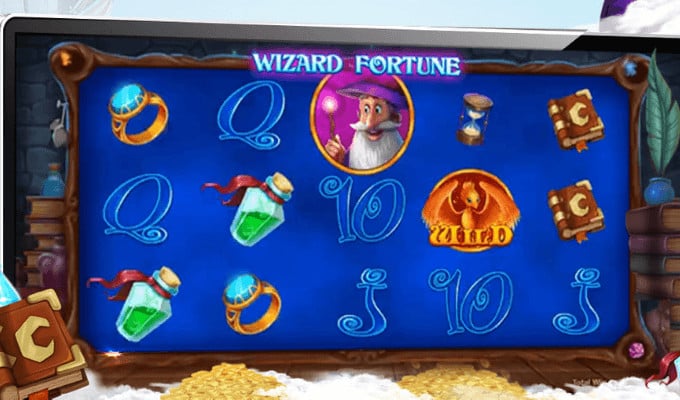
Forex currency trading is one of the most dynamic fields in the financial industry. Whether you are a novice trader or an experienced investor, it is essential to understand the intricacies of the forex market and how to select a reliable broker. With numerous options available, finding the right broker can significantly impact your trading experience. If you are interested in professional trading services, consider checking out forex currency trading broker protradinguae.com, which may provide valuable insights and tools for traders.
What is Forex Trading?
Forex, or foreign exchange, refers to the global marketplace for trading national currencies against one another. The forex market is the largest financial market in the world, significantly larger than the stock market, with a daily trading volume exceeding $6 trillion. Traders aim to profit from fluctuations in currency prices caused by various factors, including economic indicators, geopolitical events, and market sentiment.
How Forex Trading Works
Forex trading typically involves buying one currency while simultaneously selling another, known as a currency pair. For example, in the EUR/USD pair, the euro is the base currency, and the U.S. dollar is the quote currency. If you believe that the euro will appreciate against the dollar, you would buy the pair. Conversely, if you think the euro will depreciate, you can sell the pair.
The Role of Forex Brokers
Forex brokers act as intermediaries between traders and the forex market. They provide platforms for executing trades, access to trading tools, analysis, and customer support. Brokers earn money through spreads (the difference between the buying and selling prices) or commissions on trades. Choosing the right broker is crucial for a successful trading experience, and several factors should be considered.
Factors to Consider When Choosing a Forex Broker
- Regulation: Ensure the broker is regulated by a reputable authority. Regulatory bodies oversee brokers to protect investors, ensuring transparency, fairness, and security.
- Trading Platform: A good trading platform is user-friendly and offers essential tools and features, such as charting tools, technical indicators, and news feeds.
- Account Types and Leverage: Check the account types offered, leverage options, and minimum deposit requirements. Different traders have different needs, so finding an account that suits your trading style is essential.
- Spread and Fees: Compare the spreads and fees charged by various brokers. Lower costs can significantly enhance your profitability over time.
- Customer Support: Good customer service can make a difference during trading. Look for brokers that offer responsive support through multiple channels.
Types of Forex Brokers
Forex brokers can be categorized into two main types: market makers and ECN (Electronic Communication Network) brokers.
Market Makers
Market maker brokers create a market for their clients, quoting both a buy and a sell price. They often provide liquidity and may execute trades internally, meaning they could be the counterparty to your trade. This can lead to tighter spreads, but it may also create a conflict of interest if the broker profits from your losses.
ECN Brokers
ECN brokers connect traders directly to other market participants, such as banks and institutional investors. They often provide access to raw spreads and charge a commission on trades. ECN brokers can offer more transparency and better pricing for traders who require deep liquidity.
Getting Started with Forex Trading
To start trading forex, you will need to follow these steps:

- Learn the Basics: Familiarize yourself with the forex market, how it operates, and the factors that influence currency prices.
- Choose a Broker: Research and select a broker that meets your needs based on the factors discussed earlier.
- Open a Trading Account: Once you’ve chosen a broker, you’ll need to open a trading account. This typically involves providing some personal and financial information.
- Deposit Funds: Fund your account through the broker’s deposit methods. Ensure you understand the minimum deposit requirements.
- Start Trading: Begin trading by placing your first order. Utilize demo accounts to practice and refine your skills before trading real money.
Common Forex Trading Strategies
There are various strategies traders can adopt based on their goals and risk tolerance. Some popular forex trading strategies include:
Scalping
Scalping involves making numerous trades throughout the day to capture small price movements. This strategy requires a fast-paced approach and quick decision-making.
Day Trading
Day traders open and close positions within the same day to profit from short-term price fluctuations, avoiding overnight risks.
Swing Trading
Swing traders hold positions for several days or weeks to capture larger price movements. This method requires a good understanding of trends and technical analysis.
Position Trading
Position trading takes a longer-term approach, with traders holding positions for weeks or months based on fundamental analysis.
Managing Risk in Forex Trading
Risk management is crucial in forex trading. Traders are encouraged to implement strategies such as:
- Setting Stop-Loss Orders: A stop-loss order automatically closes a trade at a specified price to limit potential losses.
- Using Proper Position Sizing: Determining the appropriate size for each trade based on account size and risk tolerance can help mitigate losses.
- Diversifying Trades: Avoid putting all capital into a single trade by diversifying investments across various pairs.
Conclusion
The forex market offers unique opportunities for traders to profit from currency fluctuations. However, success requires a good understanding of the market, effective strategies, and selecting a reputable broker. Utilize the information provided in this article to navigate the forex trading landscape effectively and embark on your trading journey with confidence.
Final Thoughts
Whether you are just starting or enhancing your trading skills, understanding how forex trading works and the pivotal role of brokers will position you for success. Always stay informed, continuously educate yourself, and adapt to the ever-changing forex market.

